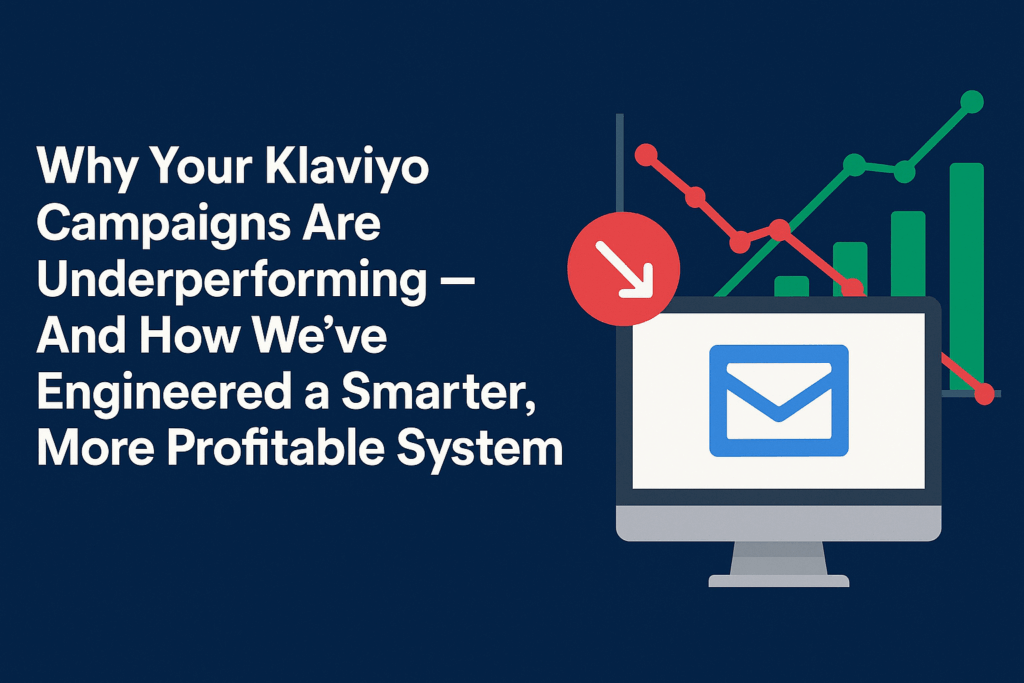Did you know that 91% of people say they hate receiving unsolicited marketing emails? Now imagine how much more they despise being spammed through contact forms—where they expect legitimate inquiries, not boilerplate garbage. I learned this the hard way after dealing with a company that has ignored every basic principle of business etiquette, ethics, and, frankly, common sense.
Let me take you through my experience.
Over the past 90 days, I’ve been hit with close to 10 spam submissions from a business, each as irritating and useless as the last. I thought, “Okay, maybe it’s an honest mistake. I’ll give them the benefit of the doubt.” So, I reached out directly to the CEO, and explained the situation. His response? An apology. Great, problem solved, right? Wrong. Less than a week later, another spam submission hit my inbox, and then another. Each time, the same robotic message offering pointless link exchanges and sponsored placements. What followed next, though, was the final nail in their coffin.
When I called them out—frustrated, yes, but professional—on their repeated spamming, their response was nothing short of baffling. “Just block us if you don’t like it. You’re being rude.” Ah, yes. Rude. Because pointing out unethical business practices that waste my time and violate fundamental rules of marketing makes me rude. But it was in that moment that I realized that this business didn’t just have a communication problem. They have a complete and utter misunderstanding of how business relationships work.
Let’s break it down.
1. Ignoring Ethical Business Practices: The Foundation of Failure
There’s a concept in psychology called the reciprocity norm, which essentially means that people are inclined to respond to positive actions with positive actions. It’s one of the cornerstones of successful human interaction—and business relationships. When a company provides value, respect, or helpful information, the recipient is more likely to reciprocate by engaging or purchasing. It’s a win-win.
Now, what happens when you flip that around? When you spam a company, sending the same worthless message repeatedly, you’re violating the reciprocity norm. Instead of offering value, you’re leeching time and patience. The brain literally responds to this kind of behavior the same way it would to a threat—fight or flight. And let me tell you, I’m not fleeing. I’m fighting back.
Businesses like this have no concept of this. Instead, they operate on the assumption that more touchpoints, no matter how unwelcome, will somehow yield results. It’s a fundamental misunderstanding of how human beings—and businesses—make decisions. When you spam someone’s contact form, you’re essentially telling them, “I don’t care about your time, your attention, or your boundaries.” Making ethical decisions is crucial for maintaining positive business relationships, and that’s not a message any company should be sending.
2. Ethics and Anti-Spam Laws: A Lawsuit Waiting to Happen? Maybe, Maybe Not…
Now, let’s address the obvious issue: The CAN-SPAM Act in the U.S. does not have international jurisdiction. The law might make you think companies that are built on spamming would be more cautious about their tactics, but here’s where it gets tricky.
Yes, the CAN-SPAM Act sets clear guidelines for what is and isn’t allowed in the U.S. when it comes to unsolicited marketing emails and spam. This includes requiring businesses to stop emailing recipients who opt-out, identifying the sender’s address, and prohibiting misleading subject lines. Sounds great, right?
A proactive compliance initiative can help businesses adhere to anti-spam laws and maintain ethical standards.
But here’s the loophole: these laws are almost impossible to enforce on companies operating outside the U.S. Companies based in countries like Armenia, Turkey, and across the Middle East, Europe, Latin America, and Africa often skirt accountability by operating internationally. These companies can easily ignore U.S. laws and say, “Oh well, it doesn’t apply to us.” And guess what? They’re right. The U.S. can’t enforce its laws on them, even if the spam ends up in an American inbox.
This is where proxy IPs come into play, and it’s one of the most shady, deceptive practices out there. Spammer will use proxies to make it seem like their spam is coming from a U.S.-based company. They’ll cloak their origin by bouncing their communications through U.S. IP addresses. By doing so, they avoid geographic blocking tools designed to prevent international spam from entering U.S.-based businesses.
They disguise themselves as local entities to avoid detection, which is both an unethical and sleazy practice. They create the illusion of legitimacy, fooling spam filters and unsuspecting businesses who believe they are receiving communication from a U.S.-based company. But once you dig a little deeper, you realize the real game: these companies know they are spamming, and they know how to cover their tracks.
3. Understanding Ethical Business Practices
Ethical business practices are the bedrock of any successful company. They are not just about following laws but about building trust and fostering long-term relationships with customers, employees, and stakeholders. These practices are guided by principles of fairness, transparency, and accountability, which are essential for creating a positive company culture and ensuring sustainable success.
– Principles of fairness, transparency, and accountability
Fairness is a cornerstone of ethical business practices. It means treating all stakeholders—customers, employees, suppliers—with respect and dignity. When a company is fair, it ensures that everyone gets a fair deal, whether it’s in pricing, employment opportunities, or business negotiations. Transparency, on the other hand, involves being open and honest in all business dealings. This means providing accurate information about products and services, and being upfront about business practices and policies. When a company is transparent, it builds trust and credibility. Accountability is equally important. It means taking responsibility for one’s actions and being answerable to stakeholders. When a company is accountable, it shows that it values integrity and is committed to doing the right thing, even when it’s difficult.
– Corporate social responsibility and environmental responsibility
Corporate social responsibility (CSR) is a vital aspect of ethical business practices. It involves taking responsibility for the impact of business activities on society and the environment. This can include initiatives like philanthropy, volunteerism, and promoting environmental sustainability. For instance, a company might engage in community service projects, donate to charitable causes, or implement green practices to reduce its carbon footprint. Environmental responsibility is particularly critical in today’s world. It involves reducing the environmental impact of business activities and promoting sustainable practices. This can mean anything from reducing waste and conserving energy to sourcing materials responsibly and supporting environmental conservation efforts. By embracing CSR and environmental responsibility, companies not only contribute to the greater good but also enhance their reputation and build stronger relationships with their stakeholders.
4. Implementing Business Ethics
Implementing business ethics is not just about having a set of rules; it’s about creating a culture where ethical behavior is the norm. This requires a strategic approach and commitment from all levels of the organization. Here are some effective strategies for promoting ethics within an organization:
– Strategies for promoting ethics within an organization
- Develop a Code of Conduct: A code of conduct is a foundational document that outlines the ethical principles and values of an organization. It provides a clear framework for ethical decision-making and ensures that all employees understand the organization’s ethical expectations. This document should be comprehensive and cover various aspects of business conduct, from interactions with customers to internal processes.
- Provide Training and Education: Regular training and education are crucial for promoting ethics within an organization. This can include workshops, seminars, and online courses focused on ethical decision-making and business ethics. By educating employees about the importance of ethics and how to handle ethical dilemmas, companies can foster a more ethical workplace.
- Lead by Example: Leadership plays a critical role in promoting ethics within an organization. Leaders and managers must lead by example and demonstrate ethical behavior in their actions and decisions. When employees see their leaders acting ethically, they are more likely to follow suit.
- Encourage Open Communication: Open communication is essential for promoting ethics within an organization. Employees should feel comfortable reporting unethical behavior or raising concerns about ethical issues without fear of retaliation. Creating a safe and supportive environment for open dialogue can help identify and address ethical issues promptly.
- Recognize and Reward Ethical Behavior: Recognizing and rewarding ethical behavior is a powerful way to promote ethics within an organization. This can include acknowledging employees who demonstrate ethical behavior and rewarding them with incentives, promotions, or public recognition. By celebrating ethical behavior, companies can reinforce the importance of ethics and encourage others to follow suit.
By implementing these strategies, organizations can create a culture of ethical behavior that builds trust with customers, employees, and stakeholders. This is essential for ensuring long-term success and sustainability in today’s competitive business environment.
The Problem With Accountability in International Spam Regulations
Let’s be clear: these companies are masters at avoiding responsibility. They operate in a gray area of international business where accountability is next to nonexistent. Because they know that the chances of facing consequences are low, they continue to push the boundaries.
In many countries, there aren’t stringent laws or even a clear understanding of what constitutes spam. In regions like Armenia, Turkey, and parts of Latin America, businesses operate under very different cultural norms compared to the U.S. The concept of privacy, personal space, and ethical marketing varies greatly, making spam not just an accepted practice but sometimes even encouraged. In countries where enforcement is weak, and the regulatory landscape is unclear, businesses don’t face the same social or legal pressure to maintain ethical marketing standards. Training programs are essential for educating employees about ethical behavior and maintaining a culture of integrity.
This raises an interesting cultural divide. In the U.S., businesses understand that spam is hated, and most savvy marketers would never use such intrusive tactics. But internationally, some regions operate under the “more is better” philosophy—more emails, more submissions, more outreach. The idea that spam could ruin a relationship with a potential client might not even cross their minds.
In many Middle Eastern and some European countries, persistence is seen as a virtue, not a flaw. This is where cultural differences play a massive role. In the U.S., repeatedly contacting a company after being asked to stop is seen as harassment. In other parts of the world, it’s interpreted as persistence—a sign that you really want the business relationship to work. But this fundamental difference in how people approach business communication is exactly why international spam is such a massive problem.
4. U.S. Companies Hate Spam: Here’s Why
Now, let’s get into why U.S. companies, in particular, despise spam—especially when it comes from international businesses trying to mask themselves as local companies. In the U.S., efficiency and time management are paramount. Wasting time on irrelevant, unsolicited messages directly impacts productivity, which is why U.S. companies have such low tolerance for spam.
American businesses also operate under a customer-first mentality—one that prioritizes respect for clients and partners. Spam, especially spam disguised as legitimate communication, erodes trust instantly. When a company realizes they’ve been duped by proxy IPs or deceived by misleading outreach, the damage is often irreparable.
Moreover, U.S. companies understand that spam signals laziness and a lack of effort. Instead of taking the time to find the right contacts, research their needs, and offer something of value, spammers take the easy way out. And that’s the real kicker here: these spam-heavy tactics don’t just annoy—they show an utter lack of respect for the recipient’s time and intelligence.
5. Cultural Differences in Business Practices: How the U.S. Differs from Armenia, Turkey, and Beyond
It’s essential to understand that spam is not universally hated in the way that it is in the U.S. In certain parts of the world, the standards for business communication are vastly different, which is why spamming practices are so rampant in countries like Armenia, Turkey, and others.
In Turkey and parts of the Middle East, businesses often operate in a high-contact, high-touch environment. Persistence is rewarded, and there is little concern for boundaries that are considered fundamental in U.S. business culture. A U.S. business might interpret repeated outreach as spam, while a Turkish company could view it as normal business persistence.
In Eastern Europe and Latin America, the legal frameworks for handling spam and data protection aren’t as robust as they are in the U.S. or Western Europe. Businesses in these regions may not face the same level of scrutiny when they engage in spammy practices, and as a result, their outreach methods reflect that. There’s often a sense that more contact equals more potential business—a complete misunderstanding of how relationships are built, especially in the U.S. market.
In Africa, spam is a slightly different story. In some regions, the access to technology is still expanding, and spam isn’t just an issue for businesses but for consumers as well. The lack of strong regulatory bodies and limited enforcement mean that spam often runs rampant. This isn’t just a business issue; it’s a global issue.
However, the U.S. business culture places a premium on trust, transparency, and respect. Companies here operate with a clear understanding that unsolicited communication—especially when it becomes excessive—breaks those values.
6. The Long-Term Consequences: Reputation, Trust, and Global Business Failures
Let’s be real: Spamming businesses are only killing their own reputation—and it’s not just because they spam, but because they double down on it. They ignore international business ethics, legal obligations, and cultural nuances that are essential for building global partnerships.
When a business spams relentlessly and masks its operations behind proxy IPs to appear U.S.-based, they’re not just breaking trust—they’re essentially committing business suicide. Reputation is everything, and once word spreads that a company engages in these shady tactics, they’ll find themselves blacklisted across industries.
In the global economy, companies that fail to adapt to the cultural expectations of their market (in this case, the U.S.) will find themselves isolated, distrusted, and ultimately irrelevant.
7. The Psychological Impact of Spam: Why It’s More Than Just an Annoyance
Let’s shift focus for a moment to the psychological impact of spam, especially when it’s constant and intrusive. There’s a reason people have such a visceral reaction to spam, and it’s rooted in the way our brains process repetitive, irrelevant stimuli. When someone receives unsolicited communication over and over again, it triggers a sense of annoyance and frustration that goes beyond a simple dislike.
This is because our brains are wired to prioritize relevant information. When you receive spam, it disrupts your cognitive flow, forcing your brain to process something that adds no value. This is called cognitive overload, and it occurs when unnecessary information overwhelms your ability to focus on what’s important. In business, time is a premium resource. Cognitive overload caused by spam is not just an annoyance—it actively detracts from productivity.
Imagine you’re a business owner. Every time you check your email or contact forms, you see irrelevant, copy-paste spam submissions. Over time, this creates a negative association with not only the sender but the action of checking those platforms. That’s how deep the impact of spam can go—it can change the way people engage with essential tools in their business.
8. Proxy IP Masking: The Deceptive Practice of Disguising Location
Let’s dig deeper into the shady world of proxy IPs and IP masking, which “spammers” use to cloak their actual location. By using proxy servers, these businesses make it appear as though their spam is coming from within the U.S., avoiding geographic filters and giving the illusion of being local or relevant. But the reality? They’re halfway across the world, in regions where anti-spam laws are either weak or non-existent.
Proxy IPs allow companies to sidestep accountability, making it seem as though they’re operating under U.S. laws when in fact they are not. This practice is not only deceptive but also speaks volumes about the business ethics of companies that engage in it. If a business needs to disguise its true location to engage with potential clients, it’s already starting the relationship on a foundation of dishonesty. And trust me, deception is not a sustainable business model.
9. The Global Business Landscape: Cultural Nuances of Spam
One of the most critical aspects of this issue is understanding the cultural differences in how businesses operate across the globe. The fact is, spam is not universally despised in the same way it is in the U.S. In some regions, the aggressive outreach that we might consider spam is viewed as persistent marketing, an essential part of closing deals. This is where spammers often find themselves operating in a moral gray area, failing to recognize that what may be acceptable in one country can be highly offensive in another.
Turkey and the Middle East: Persistence as a Virtue
In Turkey and the Middle East, persistence in business is often seen as a sign of dedication and a desire to build a strong relationship. A company that continues to reach out, even after multiple rejections, might be viewed as determined and willing to fight for the business. This cultural mentality can lead to practices that, in the U.S., would be considered outright harassment.
It’s not uncommon in these regions for businesses to make repeated, unsolicited contact, believing that eventually, persistence will pay off. While this might work in a more traditional or relationship-driven business environment, it falls flat in the U.S., where time and respect for personal boundaries are paramount.
Latin America: The Value of Personal Connections
In many parts of Latin America, business is deeply rooted in personal relationships. Networking is often done in person, and the boundary between professional and personal lives can be quite fluid. In this context, repeated outreach may not be viewed as spam but as an attempt to build a stronger personal connection.
However, when Latin American companies use these approaches with U.S.-based businesses, it can backfire. What might be seen as relationship-building in one culture comes across as intrusive and unwanted in another. This disconnect leads to frustration, as the companies employing these tactics fail to understand the cultural nuances of doing business globally.
Eastern Europe: The Legacy of a Different Business Culture
In parts of Eastern Europe, the business environment is often influenced by the legacy of post-Soviet economies, where aggressive sales tactics were sometimes necessary to survive. This environment fostered a culture where spam-like behaviors were accepted as part of doing business, especially in industries that relied on volume rather than quality relationships.
Today, many Eastern European companies continue to use high-volume, low-personalization tactics like spamming contact forms. The issue here is a mismatch in expectations when these companies try to enter Western markets. The U.S. and Western Europe, with their focus on efficiency and respect for time, simply do not tolerate these outdated methods.
10. The U.S. Business Culture: Efficiency and Respect for Boundaries
The U.S. business culture is vastly different, and this is something that international companies need to understand if they hope to operate successfully. Efficiency is king, and any action that wastes time or shows a lack of respect for personal boundaries is met with immediate resistance.
In the U.S., spam isn’t just an annoyance—it’s seen as a breach of trust. If a company cannot respect your request to stop contacting them, how can you trust them with more significant business matters? This is why U.S.-based companies like mine react so strongly to spam. It’s not about being “rude” or “unprofessional” as some might claim—it’s about demanding that the same respect be shown in business interactions as we would expect in any other professional setting.
Here’s the hard truth: U.S. companies do not reward persistence in the form of spam. They reward thoughtful, targeted outreach that respects the recipient’s time and intelligence. If your business model relies on sending hundreds of impersonal messages in the hope that a few will stick, you’ve already lost. The companies that succeed are the ones that do their homework, make meaningful connections, and engage in ethical marketing practices.
11. What International Companies Need to Learn from This
The rise of globalization means that companies from all over the world are trying to break into new markets, including the U.S. But this expansion comes with a critical requirement: understanding the cultural and ethical expectations of the new market. Spamming contact forms and using proxy IPs may seem like shortcuts to get a foot in the door, but they are actually fast-tracks to destroying your reputation.
If international companies want to succeed in the U.S., they need to drop these lazy, unethical tactics and focus on building real, value-driven relationships. This means:
- Respecting requests to stop contact: If someone says they’re not interested, take them at their word. Don’t keep pushing.
- Understanding local laws: Even if U.S. laws don’t apply to you, the ethical implications of spamming still matter. U.S. companies will not hesitate to blacklist you.
- Targeted outreach: Do your research. Personalize your messages. Take the time to find the right decision-makers and offer something of actual value.
- Cultural sensitivity: What works in Turkey, Armenia, or Latin America doesn’t necessarily work in the U.S. Adapting your tactics to the local market is key to building trust and long-term success.
12. The Long-Term Consequences of Ignoring Business Fundamentals
Let’s talk about the long-term consequences of continuing on this path. Some businesses may think they’re gaining short-term wins by spamming their way into inboxes, but in reality, they are creating a massive liability for themselves.
As word spreads about their unethical tactics, they will find themselves increasingly isolated from legitimate business opportunities. Their brand will be associated not with value, but with annoyance, deception, and disrespect. And in today’s hyper-connected world, once your reputation is damaged, it’s almost impossible to repair.
Moreover, their reliance on proxy IPs and other shady practices could land them in legal trouble down the line. While they may be skirting the edge of legality now, laws are constantly evolving, and their tactics could eventually catch up with them in ways they aren’t prepared for.
Stop Spamming, Start Building Real Relationships
The message here is simple: stop spamming, start building real relationships. Companies that rely on deceptive tactics like spamming contact forms and using proxy IPs are not just hurting their potential clients—they’re hurting themselves. If they don’t adapt, they will continue to spiral toward irrelevance and failure.
The businesses that succeed in the modern world are those that respect their clients’ time, understand the cultural nuances of global business, and engage in ethical marketing practices.
PS: This entire post was written because of the relentless SPAM Submissions and CONTACT Submissions that we have received from Linkyjuice.com. They simply will not quit spamming us and our contact forms with copy paste messages. :) DO NOT be like Linkyjuice.com, just be ethical! STOP when somebody asks you to stop!






